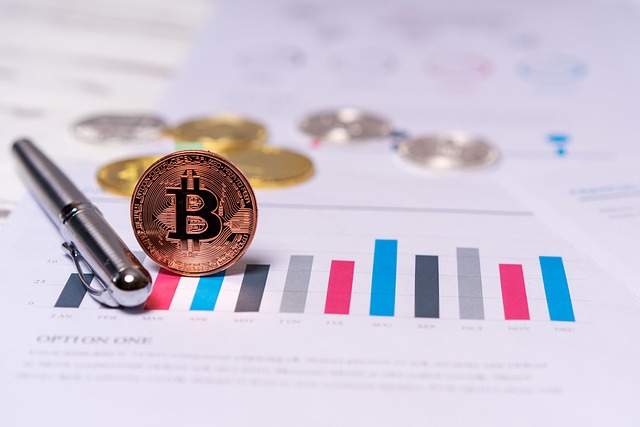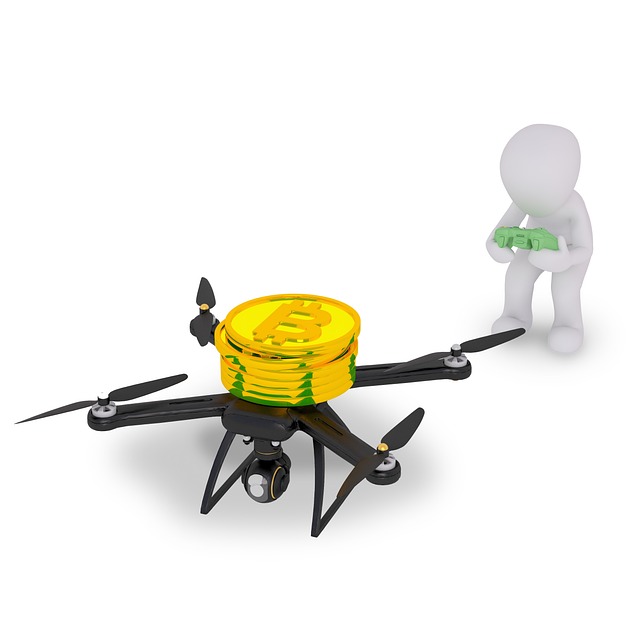DeFi Risk Management: Safeguarding Your Investments
DeFi Risk Management: Safeguarding Your Investments

Understanding the Risks in Decentralized Finance
Decentralized finance, or DeFi, has gained significant traction in recent years as a promising alternative to traditional financial systems. However, it is crucial to understand the risks associated with this burgeoning sector. One of the main risks is the lack of regulatory oversight. Unlike traditional financial institutions that adhere to a set of regulations, DeFi platforms operate in a decentralized manner, making it difficult for regulators to enforce rules and protect investors. This absence of oversight exposes investors to potential scams, frauds, or even unintentional technical glitches that could result in significant financial losses. Therefore, it is vital for individuals to thoroughly evaluate the security measures and credibility of DeFi platforms before investing their hard-earned money.
Another risk to consider when entering the realm of DeFi is the potential for smart contract vulnerabilities. Smart contracts are self-executing agreements that, once deployed on the blockchain, automatically execute specific actions when predefined conditions are met. While smart contracts eliminate the need for intermediaries and enhance transparency, they are not immune to flaws. If a smart contract is coded poorly or contains vulnerabilities, malicious actors can exploit them to gain unauthorized access or compromise the funds locked within the contract. Hence, investors must conduct thorough research to ensure the smart contracts powering DeFi platforms have undergone meticulous auditing and are resilient against potential risks.
Evaluating the Security of DeFi Platforms
When it comes to evaluating the security of DeFi platforms, there are a few key factors to consider. Firstly, it is important to assess the platform’s track record and reputation. Look for platforms that have been in operation for a reasonable amount of time and have a strong community backing. It’s a good idea to read up on user reviews and feedback to get an idea of how secure the platform is.
Another important aspect to consider is the platform’s use of smart contracts. Smart contracts are essentially self-executing contracts with the terms of the agreement written directly into code. They play a critical role in DeFi platforms, so it is important to assess the quality and security of the smart contracts being used. Look for platforms that have undergone thorough auditing by reputable third-party firms to ensure the code is robust and free from vulnerabilities.
By carefully considering the track record and reputation of a DeFi platform, as well as assessing the security of its smart contracts, investors can make more informed decisions about the level of risk associated with their investments. However, it is important to note that even with the most secure platforms, there is always some level of risk involved in DeFi. It is crucial to only invest what you are willing to lose and constantly monitor the market trends and news to stay informed.
Diversifying Your DeFi Portfolio for Risk Mitigation
Diversifying your decentralized finance (DeFi) portfolio is a key strategy to mitigate risks in this rapidly evolving market. By spreading your investments across multiple DeFi platforms and projects, you can safeguard yourself against the potential pitfalls of putting all your eggs in one basket.
The principle behind diversification is simple: don’t rely on a single DeFi platform or project to deliver all your returns. Instead, allocate your funds across different platforms, such as decentralized exchanges, lending protocols, and yield farming opportunities. This way, even if one platform or project experiences a setback or failure, your overall portfolio won’t be severely impacted. Diversification allows you to take advantage of various investment opportunities while reducing the impact of potential losses. Keep in mind that as with any investment strategy, diversification does not guarantee profits or protect against all risks, but it does help minimize the impact of specific risks associated with individual platforms or projects.
• Spreading your investments across multiple DeFi platforms and projects helps mitigate risks
• Don’t rely on a single platform or project for all your returns
• Allocate funds across different platforms like decentralized exchanges, lending protocols, and yield farming opportunities
• If one platform or project fails, your overall portfolio won’t be severely impacted
• Diversification allows you to take advantage of various investment opportunities while reducing potential losses
• Keep in mind that diversification does not guarantee profits or protect against all risks
Analyzing Smart Contracts: Identifying Vulnerabilities
Smart contracts are essential components in decentralized finance (DeFi) platforms. These contracts automate financial transactions without the need for intermediaries. However, they can also be susceptible to vulnerabilities that can be exploited by malicious actors. It is crucial to analyze smart contracts thoroughly to identify any potential weaknesses and vulnerabilities.
When analyzing smart contracts, one common vulnerability to look out for is the presence of security loopholes or coding errors. These errors can lead to exploitable flaws that can compromise the integrity of the contract and the funds held within it. Therefore, it is essential to employ robust auditing techniques to detect any vulnerabilities present in the code. Additionally, it is advisable to work with experienced auditors or security professionals who specialize in smart contract analysis to ensure a comprehensive assessment.
Another vulnerability to consider is the risk of external attacks. Smart contracts are accessible by anyone on the blockchain, making them potential targets for hackers. By conducting a thorough analysis of smart contracts, developers and security experts can uncover potential vulnerabilities that could be exploited by external attackers. By addressing these vulnerabilities, DeFi platforms can enhance their security measures and protect user funds, instilling confidence in their users.
Analyzing smart contracts to identify vulnerabilities is a critical step in ensuring the security and integrity of decentralized finance platforms. By conducting thorough assessments and employing expert audits, DeFi platforms can fortify their smart contracts against potential threats and provide a safer environment for users to participate in the exciting world of decentralized finance.
Implementing Strong Passwords and Two-Factor Authentication
In the dynamic world of decentralized finance (DeFi), implementing strong passwords and two-factor authentication (2FA) is paramount. With the increasing threat of cyber attacks, it is crucial to fortify the security of your DeFi platforms and protect your assets. Weak passwords are like an open invitation for hackers to gain unauthorized access to your accounts and compromise your investments. By using complex passwords that include a combination of uppercase and lowercase letters, numbers, and symbols, you can enhance the security of your accounts. Additionally, enabling 2FA adds an extra layer of protection by requiring a secondary verification step, such as a unique code sent to your mobile device, to access your accounts. This additional security measure greatly reduces the risk of unauthorized access and potential loss of assets.

The Importance of Choosing Reputable DeFi Projects
When it comes to the lucrative world of decentralized finance (DeFi), choosing reputable projects is of paramount importance. With the exponential growth of the DeFi space, there has been an influx of platforms claiming to offer attractive returns and opportunities. However, not all projects are created equal, and investing in unreliable or scammy projects can result in devastating financial losses.
One key aspect to consider when evaluating the reputation of a DeFi project is the team behind it. Take the time to research the team members and their backgrounds. Look for experienced professionals with a track record of success in the blockchain and finance industries. A strong team with relevant expertise is more likely to deliver on their promises and navigate potential challenges along the way.

Setting Realistic Investment Goals and Risk Tolerance
Setting realistic investment goals and understanding your risk tolerance are crucial aspects of navigating the decentralized finance (DeFi) landscape. Before delving into the world of DeFi investments, it’s important to have a clear understanding of what you hope to achieve. Setting goals allows you to define your investment strategy and stay focused on your objectives.
Start by evaluating your risk tolerance. It’s essential to take into account your financial situation, time horizon, and willingness to bear potential losses. Ask yourself how comfortable you are with fluctuations in the market and how much risk you are willing to undertake. Understanding your risk tolerance will help you make informed decisions and prevent you from taking on more risk than you can handle. Remember, the key is to strike a balance between risk and reward that aligns with your personal circumstances and long-term goals.
Staying Informed: Monitoring Market Trends and News
Staying informed about market trends and news is crucial when it comes to navigating the world of decentralized finance (DeFi). With the rapidly evolving nature of this industry, being aware of the latest developments can help you make informed decisions and stay ahead of potential risks. By monitoring market trends, you can gain insights into the performance of different DeFi projects and identify potential opportunities for growth. Additionally, staying updated with the news surrounding DeFi can provide valuable information about regulatory changes, security incidents, and technological advancements that may impact your investment strategies. Keeping a finger on the pulse of the market allows you to adapt to the ever-changing landscape of DeFi and make more informed investment decisions.
One effective way to stay informed is by following reputable sources that cover the DeFi space. This can include industry-specific blogs, news websites, social media accounts of prominent figures in the field, and dedicated DeFi forums. By immersing yourself in these channels, you can gain access to valuable insights, analyses, and discussions about market trends and news that can shape your investment strategy. It’s important to consider diverse perspectives and cross-reference information from multiple sources to form a well-rounded understanding of the market. By staying informed and up to date, you can better position yourself to make sound decisions and navigate the complexities of investing in decentralized finance.
Conducting Due Diligence: Researching DeFi Projects
Conducting due diligence is a crucial step when it comes to researching DeFi projects. With the rapid growth of decentralized finance, it’s important to take the time to thoroughly investigate and evaluate the various platforms and projects available. By doing so, you can better understand the potential risks, opportunities, and overall viability of the projects you are considering.
One key aspect of conducting due diligence is researching the background and experience of the project team. This includes looking into their previous projects, their credentials, and any relevant industry experience they may have. Understanding the team’s track record can provide valuable insights into their ability to successfully navigate the fast-paced and ever-evolving DeFi landscape. Additionally, it’s important to assess the project’s technology, including its underlying blockchain, smart contracts, and any other technical components. Analyzing the project’s code and security measures is essential in identifying any potential vulnerabilities or weaknesses that may expose your investments to unnecessary risks.
The Role of Insurance in DeFi Risk Management
In the world of decentralized finance (DeFi), risk management is a crucial aspect to consider. While DeFi platforms offer numerous opportunities for investment and yield generation, they are not without their risks. That’s where insurance plays a vital role in protecting investors’ interests and mitigating potential losses.
Insurance in DeFi operates similarly to traditional insurance policies, providing coverage for losses resulting from various risks such as smart contract vulnerabilities, hacks, or protocol failures. By offering insurance products specifically tailored for DeFi, insurance providers aim to reassure investors and encourage wider adoption of decentralized finance. These insurance policies can provide peace of mind for investors, knowing that in the event of an unforeseen event, their investments are protected. However, it is important to carefully consider the policies and terms offered by insurance providers to ensure that they meet your specific needs and offer adequate coverage for the risks involved in the DeFi space.
What are the risks involved in decentralized finance (DeFi)?
DeFi carries risks such as smart contract vulnerabilities, hacking, market volatility, and the potential for losing your investment.
How can I evaluate the security of DeFi platforms?
Look for platforms with robust security measures, audits, and bug bounties. It’s also essential to research the reputation and track record of the platform.
How can I mitigate risks in my DeFi portfolio?
Diversifying your investments across different projects can help spread the risk. By allocating your funds wisely, you can minimize the impact of any potential losses.
How can I identify vulnerabilities in smart contracts?
Performing thorough analysis and audits of smart contracts can help identify vulnerabilities. Look for reputable auditors and pay attention to the level of scrutiny the project has undergone.
What steps can I take to secure my DeFi accounts?
Implement strong passwords and enable two-factor authentication to enhance the security of your accounts. These measures make it harder for unauthorized individuals to access your funds.
Why is it important to choose reputable DeFi projects?
Reputable projects have a higher likelihood of maintaining security and delivering on their promises. They are more likely to prioritize user protection and have a better track record.
How do I set realistic investment goals and risk tolerance in DeFi?
Evaluate your financial situation and determine how much you can afford to invest without jeopardizing your financial stability. Set achievable goals and be aware of the potential risks involved.
How can I stay informed about market trends and news in DeFi?
Stay up-to-date by following reputable sources, joining relevant communities, and monitoring market trends. This will help you make informed decisions and stay ahead of potential risks.
What should I consider when researching DeFi projects?
Conduct due diligence by researching the team behind the project, analyzing their whitepaper, and assessing their community engagement.

What role does insurance play in DeFi risk management?
Insurance can provide an additional layer of protection by covering potential losses due to hacking, smart contract failures, or other unforeseen events. It helps mitigate the risks associated with participating in DeFi.
Todays Featured Product:
Buy, exchange and grow your crypto securely with a Ledger hardware wallet, combined with the Ledger Live app. It’s never been easier to keep your crypto safe and accessible. Buy direct from Ledger.com and get todays Special Offers Here.




